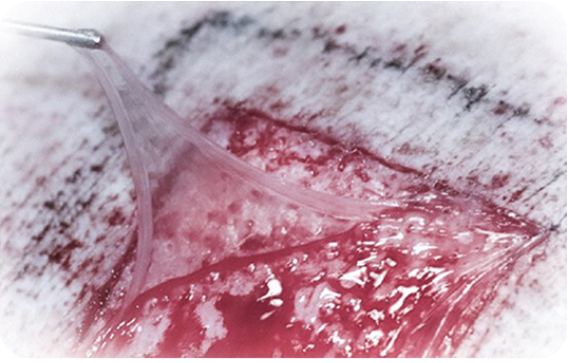Wound healing is one of the most intricate processes in the human body, and when it fails to occur naturally, advanced solutions become essential. Among the most innovative tools available today are Amniotic Allografts, which have redefined the way clinicians approach complex wound care. These grafts, derived from the amniotic membrane, are biologically active and rich in growth factors, extracellular matrix proteins, and anti-inflammatory properties—making them an indispensable part of regenerative medicine.
By offering a natural scaffold that supports tissue regeneration, Amniotic Allografts provide more than just coverage for wounds. They create a biologically favorable environment that enhances healing, reduces infection risks, and minimizes scarring. Their versatility makes them useful not only in chronic wounds, such as diabetic ulcers, but also in burns, surgical incisions, and reconstructive procedures.
Why Amniotic Allografts Stand Out
The uniqueness of Amniotic Allografts lies in their biological composition. The amniotic membrane is known for its natural ability to protect, nourish, and support developing tissue in the womb. When applied as a graft, these same properties accelerate wound healing in patients.
Key benefits include:
- Anti-inflammatory action – Reduces excessive immune response that can delay healing.
- Anti-scarring properties – Helps promote functional tissue regeneration.
- Angiogenesis support – Encourages new blood vessel formation for better oxygen supply.
- Antimicrobial activity – Protects wounds from harmful pathogens.
- Non-immunogenic nature – Minimizes the risk of rejection, making them safe for many patients.
These unique advantages make Amniotic Allografts a preferred choice among clinicians worldwide.
Skin Substitutes for Wound Healing: Filling the Gap
In traditional wound care, dressings and ointments only address the surface of the wound. However, chronic and complex wounds require solutions that penetrate deeper into the healing cascade. This is where Skin Substitutes for Wound Healing come in.
Skin substitutes can be either synthetic or biologically derived. Amniotic Allografts fall under the biological category and are particularly effective due to their natural compatibility with human tissue. Unlike purely synthetic materials, they integrate into the wound bed, offering both protection and regeneration. This makes them vital for patients with long-standing wounds that have resisted conventional treatments.
Amniotic Tissue Companies: Driving Innovation Forward
The rise in demand for regenerative therapies has paved the way for specialized Amniotic Tissue Companies. These companies are responsible for sourcing, processing, and delivering high-quality allografts that meet strict medical standards.
Through advanced preservation methods such as cryopreservation and dehydration, amniotic tissues are made readily available without compromising their biological activity. Research and development in this area continue to push the boundaries of medical science, expanding the applications of amniotic products beyond wound care into ophthalmology, orthopedics, and reconstructive surgery.
Specialized Grafts in Regenerative Medicine
While Amniotic Allografts are central to modern wound care, other specialized grafts also play significant roles. Each graft type offers unique benefits, catering to different wound conditions:
- Helicoll Graft – A collagen-based graft that serves as a scaffold for cell migration and tissue repair. Its biocompatibility and strength make it highly effective in managing burns, pressure ulcers, and donor sites.
- Membrane Wrap Graft – Designed to cover and protect exposed structures such as tendons and bones. Its protective qualities help maintain tissue integrity while fostering regeneration beneath.
- Allopatch Graft – Known for its durability and compatibility, the Allopatch Graft is often used in surgical and orthopedic applications. It offers a robust solution for tissue reinforcement and reconstruction.
- Esano Graft – An adaptable graft that combines biological activity with ease of use. Clinicians value it for its ability to support cellular ingrowth and vascularization in a variety of wound types.
Together, these advanced grafts form a comprehensive toolkit for clinicians, ensuring that treatment can be customized according to each patient’s unique needs.
The Role of AmnioAMP-MP in Advanced Healing
Among the latest innovations in regenerative medicine is AmnioAMP-MP, a specialized amniotic product designed to optimize the healing process. Rich in natural growth factors, AmnioAMP-MP provides powerful regenerative signals to accelerate tissue repair. Its ability to reduce inflammation, support angiogenesis, and improve wound closure makes it a valuable addition to advanced wound care protocols.
AmnioAMP-MP highlights how the field continues to evolve, with companies developing specialized formulations that maximize the inherent healing potential of amniotic tissue.
Integration of Advanced Wound Care Products in Clinical Practice
The effectiveness of Amniotic Allografts and other advanced products depends on proper integration into clinical workflows. Healthcare providers assess factors such as wound depth, infection risk, vascular supply, and patient health status before selecting the appropriate graft.
Once applied, these advanced wound care products create an optimal healing environment, often reducing the need for prolonged hospital stays and lowering overall healthcare costs. Patients benefit from faster healing times, less pain, and reduced complications—all of which improve quality of life.
Shaping the Future of Regenerative Medicine
The growing use of Amniotic Allografts reflects a broader shift in healthcare: moving from repair to regeneration. Instead of simply closing wounds, clinicians now focus on restoring functional, healthy tissue.
The future promises even more breakthroughs as research explores the role of amniotic tissue in treating neurological disorders, joint degeneration, and even cosmetic applications. Continuous innovation by Skin Graft Companies and Amniotic Tissue Companies ensures that new generations of grafts will be even more effective, easier to use, and more widely accessible.
Why Patients and Clinicians Trust Advanced Biological Grafts
Patients today are more informed and proactive about their healthcare choices. They seek treatments that not only work but also offer long-term benefits with minimal risks. Advanced biological grafts, such as Amniotic Allografts, meet this demand perfectly by combining scientific rigor with natural healing potential.
For clinicians, these products simplify treatment strategies while providing superior outcomes. Whether it’s managing a chronic wound, supporting surgical recovery, or addressing traumatic injuries, advanced grafts are reshaping how wound care is delivered.
Conclusion
The introduction of Amniotic Allografts and related regenerative products marks a turning point in wound care and medical science. With their unmatched ability to accelerate healing, reduce scarring, and minimize complications, they represent the future of patient-centered treatment.
Supported by Advanced Wound Care Products, the expertise of Skin Graft Companies, and innovations such as Helicoll Graft, Membrane Wrap Graft, Allopatch Graft, Esano Graft, and AmnioAMP-MP, these solutions are setting new standards in healthcare.
As medical science continues to evolve, one thing is certain: regenerative therapies will remain at the forefront of healing innovations—helping patients recover faster, better, and with renewed hope.



